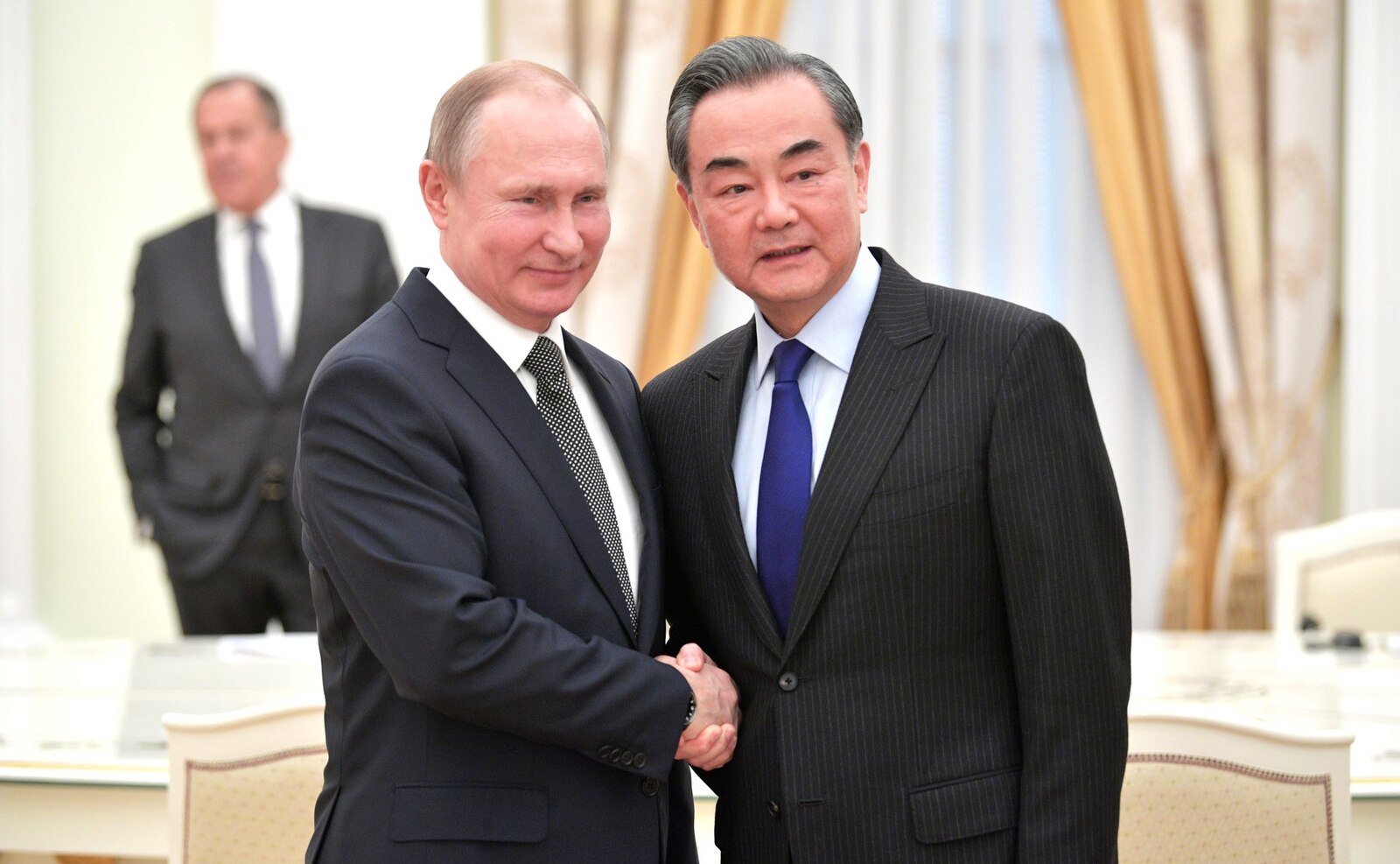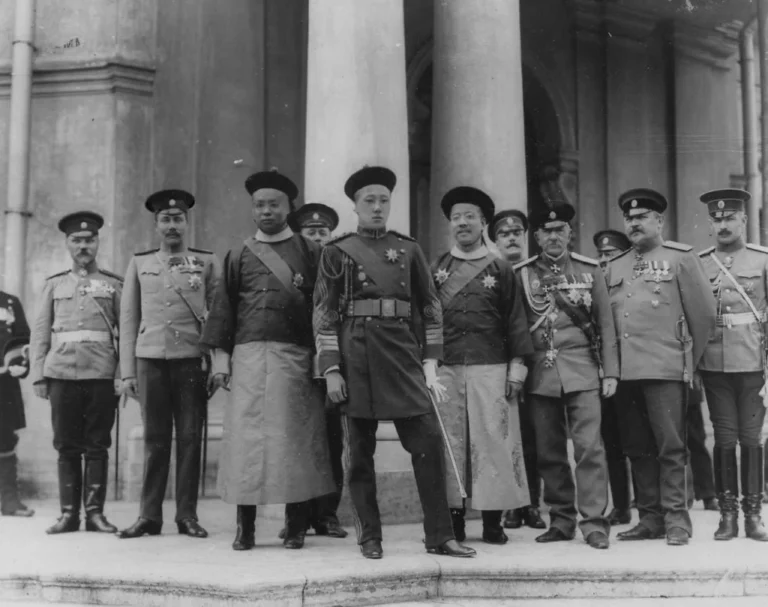
Within the dense calendar of global diplomacy, the meeting between Chinese Foreign Minister Wang Yi and EU High Representative Kaja Kallas, held in Brussels on July 2, 2025, during the 13th EU-China Strategic Dialogue, revealed far more than what was conveyed in the official communiqués. Over four hours of discussion, Beijing articulated a clear geopolitical stance on the war in Ukraine and the future global balance of power.
According to European and international sources, Wang stated that “China cannot afford for Russia to lose the war in Ukraine,” citing concerns that, once the conflict ends, the United States will refocus its full strategic attention on China, intensifying pressure on Beijing in the Indo-Pacific – particularly over Taiwan. Wang also reiterated China’s official narrative, emphasizing that Beijing does not provide direct military or financial support to Russia, adding that “if it did, the conflict would already be over.” His remarks reveal a striking clarity of vision: China regards the maintenance of Russian stability as a strategic imperative, explicitly linking the war in Ukraine to its geopolitical balance in the Indo-Pacific.
Beijing’s Strategic Imperative: Keeping Russia Stable
China’s inclination toward supporting Russia in the conflict is already well established. Its position can be described as one of “pro-Russian neutrality.” On September 9, 2022, during an official visit to Moscow, Li Zhanshu, former Chairman of the Standing Committee of the National People’s Congress, declared that the United States and NATO were endangering Russia’s national security. He also stated that China understood and supported Russia’s position on Ukraine and was therefore willing to assist. According to Wu Guoguang, Senior Fellow on Chinese Politics at the Center for China Analysis, Li’s use of the term 策应 (ceying) conveyed the idea of strategic, discreet, and well-coordinated behind-the-scenes support.
But what does Wang mean by a “defeat of Russia”? China has never explicitly defined what constitutes a Russian defeat in Ukraine. Beijing appears to interpret the issue in strictly geopolitical terms, rather than territorial ones – diverging significantly from Vladimir Putin’s perspective. For Russia, defeat might mean relinquishing occupied territories; for China, it would entail greater NATO influence on Russia’s borders, the unacceptable weakening of a strategic partner, and the consolidation of perceived American hegemony.
Such an outcome would strengthen NATO in Europe and enable potentially greater Western sway in Asia. Moreover, destabilizing weakening of the Russian regime – possibly leading to a leadership change and disruption of the Sino-Russian axis – would be intolerable for Beijing. The fall of Putin would mean the loss of a pillar in the multipolar world order and greater exposure to unilateral American pressure. For these reasons, even without direct military involvement, China’s support for Russia is evident and multifaceted: economically (energy purchases, yuan-based trade), diplomatically (resisting to explicit condemnations, particularly at the UN), and discursively (criticizing NATO expansion and highlighting the so-called “root causes” of the conflict).
Should Russia’s position deteriorate further – economically or militarily – and should the United States maintain or escalate strategic pressure on Beijing, it is plausible that China would significantly intensify its support for Moscow. Such a commitment would be driven not by ideological alignment or tactical convenience, but the strategic need to preserve regime stability in Russia and safeguard its role as a geopolitical bulwark in Eurasia, which is essential for containing Western influence and recalibrating the global order along multipolar lines.
“The current priority is to jointly prepare for the next stage of high-level exchanges, deepen comprehensive strategic coordination, promote [Beijing’s and Moscow’s] respective development and revitalization, and work together to address the challenges posed by a turbulent and changing world,” stated Wang Yi after his meeting with Sergei Lavrov during the Shanghai Cooperation Organization’s Council of Foreign Ministers meeting on July 15, 2025, in Tianjin, China. In this light, the assessment offered by Professor Zhao Huasheng of Fudan University’s Center for Russian and Central Asian Studies is particularly noteworthy: “Russia’s role is crucial for China in maintaining security and stability along its continental periphery, especially as Western pressure intensifies in the Indo-Pacific.” Zhao emphasized that, in the event of an escalation over Taiwan, Russian support would be vital for China’s energy security and its resilience to Western sanctions.
Managing Divergences and Expanding Influence
However, strategic divergences between Beijing and Moscow persist. Professor Feng Yujun, a leading expert on Russia at Peking University, warned against the imperial logic driving Moscow’s actions in Ukraine, asserting that “Russian conception of cultural boundaries instead of actual sovereign boundaries […] is in essence no different from the West’s [belief in] the primacy of human rights over sovereignty.” In his view, both frameworks justify crossing or redrawing state borders in the name of an overriding principle – for Moscow, this is the protection of a perceived civilizational or cultural space, for the West, the defense of universal human rights. While the moral content of these principles differs sharply, Feng suggests they share the same structural challenge to the norm of non-interference in other countries’ domestic affairs. Beijing has sought to distance itself – at least formally – from this rationale, consistently voicing support for Ukrainian sovereignty and territorial integrity, and never officially recognizing the annexation of Crimea or the independence of Luhansk and Donetsk.
Several prominent Chinese analysts argue that Russia’s military adventurism has contributed to the re-emergence of bloc confrontation, reinforcing US hegemony over its allies, undermining European strategic autonomy, and intensifying American pressure in the South China Sea and Taiwan. Donald Trump’s strategic maneuvers regarding Ukraine, NATO, and trade policy have nonetheless exposed significant fractures in transatlantic cohesion. Beijing may now be tempted to exploit – or even amplify – these fissures to encourage Europe to look eastward for new security and development guarantees.
A similar message was delivered to the United States during a recent meeting between Wang Yi and US Secretary of State Marco Rubio on the sidelines of the ASEAN ministerial summit that took place in Kuala Lumpur between July 8-11. Wang described the conversation as “constructive” and conducive to managing bilateral differences, stressing that both China and the United States bear responsibility for avoiding misunderstandings and creating favorable conditions for cooperation. China expressed willingness to expand dialogue at multiple levels, conditional on mutual respect and recognition of each other’s strategic positions – especially concerning Taiwan. Rubio affirmed that, and despite ongoing disagreements, the talks opened tangible avenues for cooperation and hinted at the possibility of a future meeting between Donald Trump and Xi Jinping.
Europe at the Crossroads
As in its dialogue with Europe, Beijing sought to present itself as a rational and responsible actor, but only insofar as the other side acknowledges the need for a new multipolar balance. China’s posture in the Israel-Iran conflict further illustrates its strategic orientation: it refrained from offering any support to its traditional partner Iran in the aftermath of Israeli (and US) strikes. Indeed, for some time now, Beijing has successfully recalibrated its regional influence by distancing itself from Iran’s more destabilizing initiatives and drawing closer to Gulf states and Saudi Arabia. This shift has been facilitated by growing disillusionment among regional actors with Washington’s ability to deliver security and development. As a result, these states have reoriented their foreign policies, from which Beijing has benefited both economically (through increased Chinese investment in strategic technology sectors) and politically (through support for its policies in Xinjiang and recognition of its sovereignty over Taiwan – a gesture reciprocated by China’s non-interference in in the Gulf states’ domestic affairs).
It is against this backdrop that Wang Yi’s message to Europe becomes clear: if Europe seeks genuine Chinese neutrality on Ukraine, it should follow the Gulf’s example and pursue broader strategic coordination with Beijing to counter US pressure – both on trade and Taiwan. In this light, repeated European calls for China to use its influence on Moscow to facilitate negotiations appear less like a coherent diplomatic strategy and more like political messaging – akin to past appeals on human rights.
Meanwhile, the escalation of American tariffs is gradually restricting access of both European and Chinese exports to the US market. European economies thus face dual pressures: rising Chinese competition in global markets and the threat of asymmetric competition at home, which is likely to erode Europe’s industrial base, accelerate deindustrialization, and increase unemployment. In this period of transition and vulnerability, Europe stands at a crossroads: either it decisively advances its integration process, strengthening the defenses of its market and strategic sovereignty, or it resigns itself to progressive marginalization – caught between Chinese industrial ambitions and Russian military assertiveness.
Written by
Emanuele Rossi
de_f_tEmanuele Rossi is an independent analyst focusing on the global connections of the Mediterranean. He is a Senior Fellow at Formiche and Decode39, and an author for the Med-Or Italian Foundation. His work regularly appears in media outlets and think tanks, covering security, international politics, geopolitics, and geo-economics.
Enrico Maria Fardella
FardellaEnricoEnrico Maria Fardella is an Associate Professor in the Department of Social and Human Sciences at the University of Naples ‘L’Orientale’ and Adjunct Professor at the School of Advanced International Studies (SAIS) Europe of Johns Hopkins University. He serves as the Director of the ChinaMed.it Project, Associate Director of the Guarini Institute for Public Affairs at John Cabot University in Rome, and a Global Fellow at the Woodrow Wilson International Center for Scholars in Washington, D.C. He is also an Honorary Life Member of Trevelyan College at Durham University and sits on the editorial boards of the European Journal of East Asian Studies and Orizzonte Cina. Previously, Dr Fardella held the position of Associate Professor at Peking University, where he also served as Director of the Center for Mediterranean Area Studies. Additionally, he was a Fellow of the Science & Technology China Program at the European Commission. His research interests encompass the history of Chinese foreign policy, as well as China’s relations with the European Union, the Middle East, and Italy, from the Cold War to the present.


